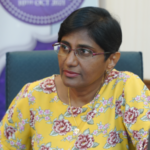Reports of breast cancer are universally on the rise. In Malaysia, it is particularly striking that most cancer patients are diagnosed progressively at a younger age. The age range observed for breast cancer spans from as young as 28 to 30 years old to as old as 90 years old. While there’s no definitive explanation for this unsettling uptick, these are the factors Malaysians should be mindful of.
When the topic of cancer arises, many instinctively attribute it to family history, thinking of close siblings or parents who may have had the disease, which can influence their risk of developing breast cancer. However, based on my experience, only about 10% of cancer diagnoses are directly tied to family history. A staggering 90% of cases occur in individuals without a family history of the cancer disease. Therefore, while a close family member’s diagnosis does introduce some added risk, it’s relatively minimal in the grand scheme of things.
To add, I personally think cancer is on the rise due to the stress of today’s lifestyle. From an increasingly young age, people are exposed to chronic stress that weakens the immune system and triggers inflammation—both potential catalysts for cancer development. Younger generations are especially vulnerable, burdened by social pressure, career pressure and family stress.
My take on this matter is to try to de-stress and approach situations with a lighter heart. As I often tell my patients, “If you’re happy, it’s half the battle won.” When your mind is in a positive state, it greatly influences your body’s well-being. A happy and strong mind can have a meaningful impact on leading a cancer-free life.
Besides, our dietary choices are putting us at risk. We often consume foods filled with an alarming quantity of preservatives and pesticides. These additives don’t just impact our waistlines; they can also lead to hormonal imbalances and an elevated cancer risk. So, choose your food wisely and make sure to adhere to a clean eating.
Apart from all that, let’s consider a vital question: When was the last time you examined your breasts? Regular self-examinations must become a part of our routine. I’ve had patients come to me and say, “I’m too shy and frightened to perform a breast examination”, or “I’m unsure of what to look for.” To that, I say, setting aside those concerns is essential. The first time you examine your own breasts, you take the first step towards being aware. From then on, you’ll know what your breasts normally feel like, and any changes encountered in the later period will be easier to detect.
The optimal time to perform a self-examination of your breasts is once a month, ideally just after your menstrual cycle has ended. If during one of these monthly exams you notice something different, such as the formation of a lump, it is crucial to seek medical advice without delay. Early detection greatly improves the effectiveness of treatment and increases your chances for a favourable outcome.
Now, not every lump is an indication of cancer. However, the advice is to always get it checked. Early detection simplifies the diagnostic process. If a lump is found to be cancerous, early treatment can begin immediately. The general recommendation is for women under 40 to undergo ultrasound screenings as an early detection method for breast cancer. For women over 40, it is advised to have both mammogram and ultrasound screenings, ideally every two years. As mentioned, these screenings can be vital tools in the early detection of breast cancer, providing the best chances for effective treatment and a favourable outcome.
KPJ Johor Specialist Hospital provides a comprehensive range of treatments and surgical options tailored to individuals diagnosed with cancer. Among these offerings is specialised breast-conserving surgery. In addition to surgical solutions, the hospital offers other treatments, including chemotherapy, immunotherapy, hormone therapy, and radiotherapy. These multimodal approaches ensure that patients receive personalised, targeted care that addresses their specific needs and conditions.
 Dr Sarojah Arulanantham,
Dr Sarojah Arulanantham,
General Surgeon, Breast & Endocrinology,
KPJ Johor Specialist Hospital.


